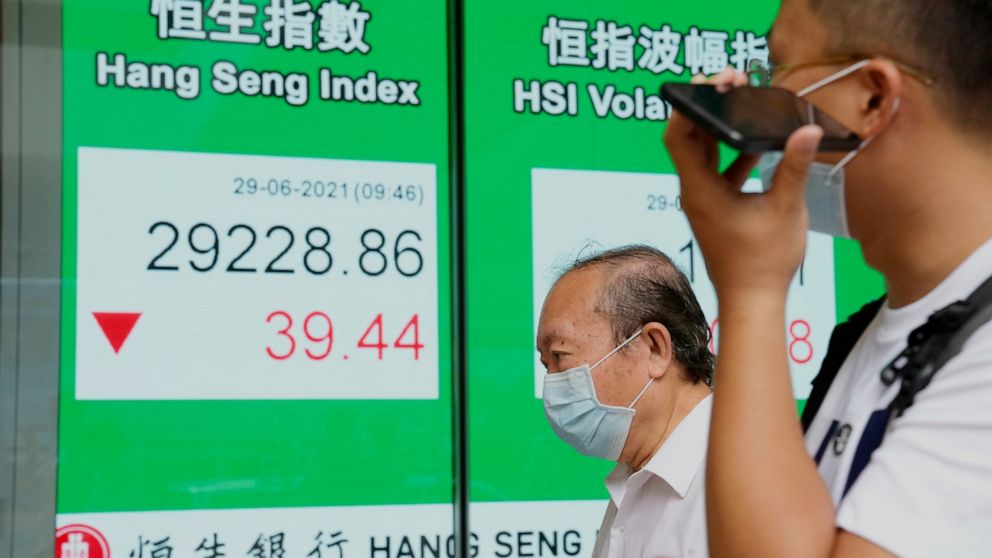Stocks drift around their record highs on Wall Street
U.S. stocks are drifting around their record highs on Tuesday as Wall Street waits for the heavyweight economic data coming at the end of the week
NEW YORK — U.S. stocks are drifting around their record highs on Tuesday as Wall Street waits for the heavyweight economic data coming at the end of the week.
The S&P 500 was 0.1% lower in afternoon trading after earlier adding to the all-time high it set a day earlier. Nearly as many stocks were rising within the index as falling, as weakness for several banks and utilities offset gains for tech companies.
The Dow Jones Industrial Average was 11 points lower, or less than 0.1%, at 34,272, as of 2:43 p.m. Eastern time. The Nasdaq composite added less than 0.1% to its record high set a day before.
Stocks have set their recent records on optimism that the economy is strengthening and that the Federal Reserve will keep interest rates low for a while longer.
A report released Tuesday morning showed a measure of confidence among U.S. consumers is continuing to rise, beating economists’ expectations for a slight decline. That’s key for an economy made up mostly of spending by consumers.
A separate report showed that home prices across the country rose again in April, continuing their blistering pace.
With a little more than one trading day left in June, the market is getting ready to close out a strong first half of the year. The S&P 500 is on track for a gain of more than 14%, more than double its average for a full year, going back to the start of the millennium.
Technology stocks did much of Tuesday’s heavy lifting for the broader market. Apple rose 1.2%, and Microsoft gained 0.9%.
Major banks announced plans to return billions of dollars to their shareholders through dividend increases and stock buybacks after passing the Federal Reserve’s most recent “stress tests.”
Morgan Stanley rose 3.3% after announcing a doubling of its dividend and plans to buy back $12 billion of its own stock. Other bank stocks were mixed following their own announcements. Goldman Sachs rose 1%, but Bank of America fell 1.7%.
The big piece of economic data this week will be Friday’s jobs report for June. Economists expect U.S. employers created 675,000 more jobs than they cut, with the unemployment rate falling to 5.7%.
Job growth has been choppy recently, with gains falling disappointingly short of economists’ excpectations in recent months. That’s key because the Fed is likely to keep up its support for the economy through low interest rates as long as the job market looks like it needs help.
“This Friday’s unemployment number is pretty important because its going to determine the trajectory of when the Fed is actually going to adjust its policies,” said Andrew Slimmon, portfolio manager at Morgan Stanley Investment Management.
The central bank, meanwhile, has stuck by its position that high inflation is likely to be only temporary. That would allow it to keep interest rates low longer than it otherwise would.
Long-term bond yields have leveled out after jumping earlier in the year in part because of inflation concerns. The yield on the 10-year Treasury was holding steady at 1.48%.
![]()


